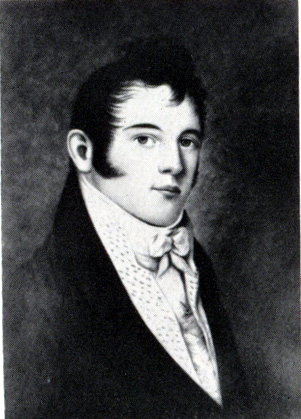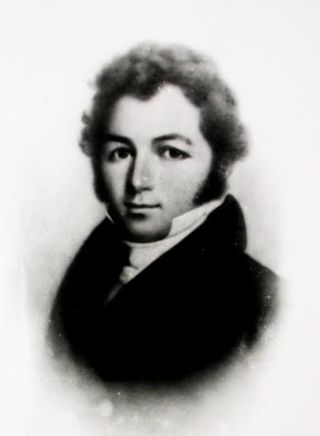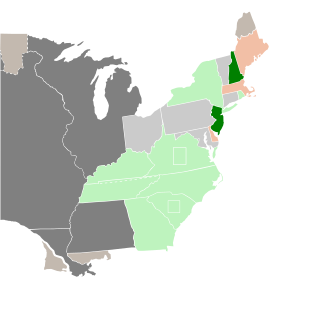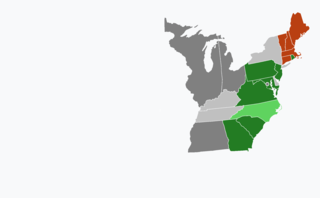| Elections in North Carolina |
|---|
 |
North Carolina increased its apportionment from 10 to 12 seats after the 1800 census.
| District | Incumbent | Party | First elected | Result | Candidates |
|---|---|---|---|---|---|
| North Carolina 1 | Thomas Wynns Redistricted from the 8th district | Democratic-Republican | 1802 (special) | Incumbent re-elected. | √ Thomas Wynns [lower-alpha 1] (Democratic-Republican) |
| North Carolina 2 | Willis Alston Redistricted from the 9th district | Democratic-Republican | 1798 | Incumbent re-elected. | √ Willis Alston (Democratic-Republican) 63.1% William R. Davie (Federalist) 26.9% |
| North Carolina 3 | None (District created) | New seat. New member elected. Democratic-Republican gain. | √ William Kennedy (Democratic-Republican) 51.1% Thomas Blount (Democratic-Republican) 48.9% | ||
| North Carolina 4 | John Stanly Redistricted from the 10th district | Federalist | 1800 | Incumbent lost re-election. New member elected. Democratic-Republican gain. | √ William Blackledge (Democratic-Republican) 59.9% John Stanly (Federalist) 40.1% |
| North Carolina 5 | William H. Hill Redistricted from the 6th district | Federalist | 1798 | Incumbent retired when appointed U.S. District Judge (later withdrawn). New member elected. Democratic-Republican gain. | √ James Gillespie (Democratic-Republican) 57.5% Alexander D. Moore (Federalist) 42.5% |
| North Carolina 6 | Nathaniel Macon Redistricted from the 5th district | Democratic-Republican | 1791 | Incumbent re-elected. | √ Nathaniel Macon (Democratic-Republican) 99.8% |
| North Carolina 7 | William B. Grove | Federalist | 1790 | Incumbent retired. New member elected. Federalist hold. | √ Samuel D. Purviance (Federalist) 42.3% Duncan McFarlan (Democratic-Republican) 33.0% Isaac Lanier (Federalist) 23.6% John Hay (Democratic-Republican) 1.1% |
| Robert Williams Redistricted from the 3rd district | Democratic-Republican | 1796 | Incumbent retired to run for Governor of North Carolina. Democratic-Republican loss. | ||
| North Carolina 8 | Richard Stanford Redistricted from the 4th district | Democratic-Republican | 1796 | Incumbent re-elected. | √ Richard Stanford (Democratic-Republican) 75.1% Nathaniel Jones (Federalist) 24.9% |
| North Carolina 9 | None (District created) | New seat. New member elected. Democratic-Republican gain. | √ Marmaduke Williams (Democratic-Republican) 53.8% Theophilus Lacy (Democratic-Republican) 28.3% William Nash (Democratic-Republican) 15.5% Anton Brown (Federalist) 2.4% | ||
| North Carolina 10 | None (District created) | New seat. New member elected. Democratic-Republican gain. | √ Nathaniel Alexander (Democratic-Republican) 55.8% Basil Gaither (Federalist) 44.2% | ||
| North Carolina 11 | James Holland Redistricted from the 1st district | Democratic-Republican | 1800 | Incumbent re-elected. | √ James Holland (Democratic-Republican) 70.7% William Tate (Federalist) 29.3% |
| North Carolina 12 | Archibald Henderson Redistricted from the 2nd district | Federalist | 1798 | Incumbent retired. New member elected. Democratic-Republican gain. | √ Joseph Winston (Democratic-Republican) 29.6% Meshack Franklin (Democratic-Republican) 28.6% William Lenoir (Democratic-Republican) 22.8% George Houser (Democratic-Republican) 9.7% Mussendine Matthews (Federalist) 9.3% |












